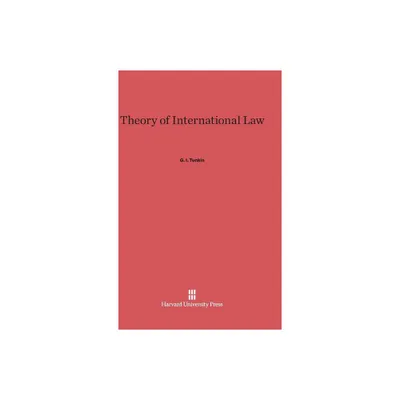Home
International Law and the Principle of Non-Intervention: History, Theory, Interactions with Other Principles
Loading Inventory...
Barnes and Noble
International Law and the Principle of Non-Intervention: History, Theory, Interactions with Other Principles
Current price: $180.00


Barnes and Noble
International Law and the Principle of Non-Intervention: History, Theory, Interactions with Other Principles
Current price: $180.00
Loading Inventory...
Size: Hardcover
*Product Information may vary - to confirm product availability, pricing, and additional information please contact Barnes and Noble
The principle of non-intervention is one of the most venerable principles of international law. Although not expressly mentioned in the Charter of the United Nations, at least as an inter-state prohibition, the principle currently appears in a plethora of treaties and UN General Assembly resolutions and has been invoked by states of all geographical and political denominations. Despite this, the determination of its exact content has remained an enigma.
International Law and the Principle of Non-Intervention: History, Theory, and Interactions with Other Principles
solves this enigma by exploring what constitutes an 'intervention' in international law and when interventions are unlawful. These questions are approached from three different perspectives, which are reflected in the book's structure: historical, theoretical, and systemic. Through a comprehensive survey of primary documents and of over 200 cases of intervention from the mid-18th century to the present day, as well as an extensive literature search, this work provides an in-depth analysis of the principle of non-intervention which links it to fundamental notions of international law, including sovereignty, use of force, self-determination, and human rights protection.
International Law and the Principle of Non-Intervention: History, Theory, and Interactions with Other Principles
solves this enigma by exploring what constitutes an 'intervention' in international law and when interventions are unlawful. These questions are approached from three different perspectives, which are reflected in the book's structure: historical, theoretical, and systemic. Through a comprehensive survey of primary documents and of over 200 cases of intervention from the mid-18th century to the present day, as well as an extensive literature search, this work provides an in-depth analysis of the principle of non-intervention which links it to fundamental notions of international law, including sovereignty, use of force, self-determination, and human rights protection.


















